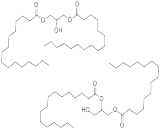In cancer chemotherapy, the advantages of liposome encapsulation of antitumor drugs remain uncertain, with the possible exception of the usefulness of encapsulated 1-beta-D-arabinofuranosyl-cytosine, an antitumor drug of a very short half-life. Liposome-encapsulated ara-C has been shown by others to enhance significantly the survival time of mice bearing leukemia, and the enhancement may be attributable to the role of liposomes as a slow release system for ara-C. Intravenously implanted Lewis lung carcinoma is used as a solid tumor model. The therapeutic effectiveness of the two slow release forms of ara-C given by either i.v. or i.p. injections is examined. Viable tumor cells were inoculated i.v. and treatment was initiated 24 hr later using three schedules of multiple treatments for liposomal ara-C and single or multiple injections of ara-CDP-L-dipalmitin.

